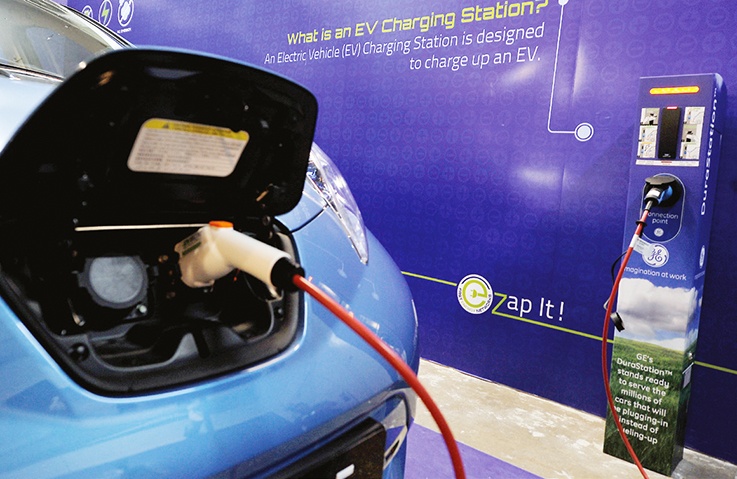
One of the project’s outcomes is initiating the transformation of Langkawi into a low-carbon island, says MGTC
by S BIRRUNTHA / pic by TMR FILE
THE Environment and Water Ministry (KASA) through the Malaysian Green Technology and Climate Change Centre (MGTC) has completed an energy-efficient low-carbon transport (EELCT) project.
The US$2 million (RM8.3 million) project, which started in 2015, was funded by the Global Environment Facility and implemented with the support of the United Nations Industrial Development Organisation.
The project was an initiative towards carbon dioxide (CO2) reduction in the transportation sector, consistent with Malaysia’s commitment under the United Nations Framework Convention on Climate Change.
MGTC said one of the project’s outcomes is initiating the transformation of Langkawi into a low-carbon island.
“This outcome aims to raise public awareness through the concept of green technology demonstration. The function witnessed the handing over of one unit of Nissan Leaf and 10 units of Treeletrik T-70 (e-bike) to Langkawi Municipal Council, the City of Tourism (MPLBP).
“This demonstration initiative spearheaded by MGTC with the cooperation of MPLBP encourages low-carbon transport adoption, among the locals and tourists in Langkawi,” it said in a statement last Friday.
The agency noted that this cooperation will complement the ongoing initiative undertaken by the agency with 10 charging stations installed on the island.
Currently, there is a total of 309 electric-vehicle (EV) charging stations in Malaysia, with 200 at public locations.
The EELCT project is a part of the government’s climate change mitigation strategy for the Malaysian transport sector.
In line with the Paris Agreement, Malaysia is committed to reducing its greenhouse gas emissions intensity of GDP by 45% by 2030 relative to the emission intensity of GDP in 2005.
This consists of 35% on an unconditional basis and a further 10% is upon receipt of climate finance, technology transfer and capacity building from developed countries.
According to MGTC, the project aims to develop mitigating strategies to address the issue of the transport sector being the second-largest CO2 emitter (28%) after the energy sector in Malaysia.
The project has also deployed a policy framework to accelerate the mainstreaming of EVs over the coming years in Malaysia.
“The project through multi-stakeholder interactions has deliverables related to key policy developments on low-carbon transport.
“This will comprise, among others, four demonstration projects related to the development of charging infrastructure for private and public transportation, and sets the foundation for future reference and development of low-carbon transport initiatives in Malaysia,” it said.
Additionally, the outcomes of this EELCT project are also expected to assist Malaysia to enhance its green growth agenda.
One of the key deliverables of this project is the development of the draft Low Carbon Mobility Blueprint (LCMB) which was set to be in line with Thrust 4 of the National Transport Policy 2019-2030.
MGTC said this document is now going through its final stages of refinement and will be tabled for government adoption soon.
In the development of LCMB, MGTC conducted more than 30 stakeholder consultation sessions with key ministries, government agencies, government-owned and -linked companies, local authorities, industry associations, academia and non-governmental organisations.
Source : The Malaysian Reserve

